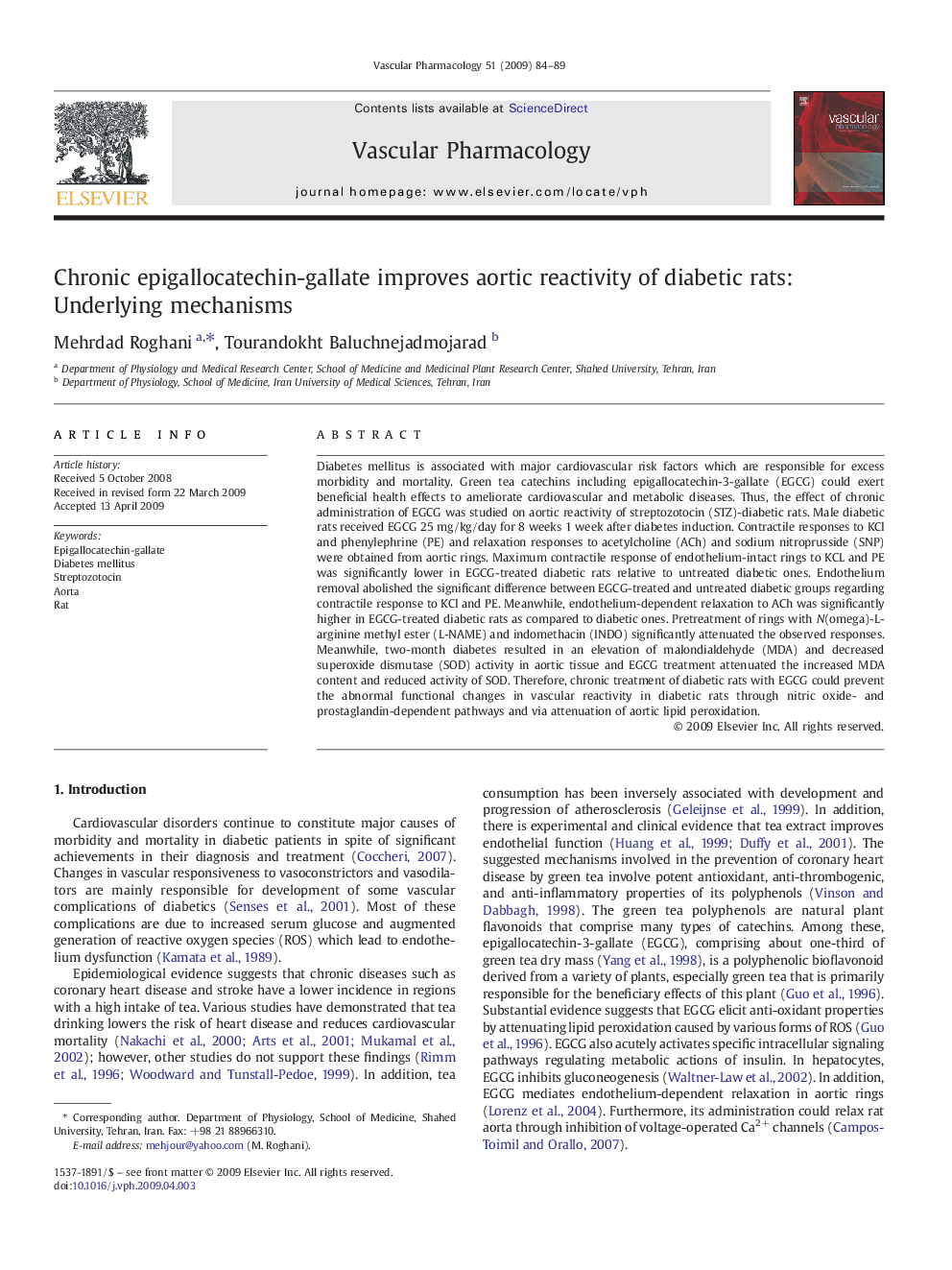| کد مقاله | کد نشریه | سال انتشار | مقاله انگلیسی | نسخه تمام متن |
|---|---|---|---|---|
| 2574494 | 1561275 | 2009 | 6 صفحه PDF | دانلود رایگان |

Diabetes mellitus is associated with major cardiovascular risk factors which are responsible for excess morbidity and mortality. Green tea catechins including epigallocatechin-3-gallate (EGCG) could exert beneficial health effects to ameliorate cardiovascular and metabolic diseases. Thus, the effect of chronic administration of EGCG was studied on aortic reactivity of streptozotocin (STZ)-diabetic rats. Male diabetic rats received EGCG 25 mg/kg/day for 8 weeks 1 week after diabetes induction. Contractile responses to KCl and phenylephrine (PE) and relaxation responses to acetylcholine (ACh) and sodium nitroprusside (SNP) were obtained from aortic rings. Maximum contractile response of endothelium-intact rings to KCL and PE was significantly lower in EGCG-treated diabetic rats relative to untreated diabetic ones. Endothelium removal abolished the significant difference between EGCG-treated and untreated diabetic groups regarding contractile response to KCl and PE. Meanwhile, endothelium-dependent relaxation to ACh was significantly higher in EGCG-treated diabetic rats as compared to diabetic ones. Pretreatment of rings with N(omega)-L-arginine methyl ester (L-NAME) and indomethacin (INDO) significantly attenuated the observed responses. Meanwhile, two-month diabetes resulted in an elevation of malondialdehyde (MDA) and decreased superoxide dismutase (SOD) activity in aortic tissue and EGCG treatment attenuated the increased MDA content and reduced activity of SOD. Therefore, chronic treatment of diabetic rats with EGCG could prevent the abnormal functional changes in vascular reactivity in diabetic rats through nitric oxide- and prostaglandin-dependent pathways and via attenuation of aortic lipid peroxidation.
Chronic treatment of diabetic rats with EGCG could prevent the abnormal functional changes in vascular reactivity in diabetic rats through nitric oxide- and prostaglandin-dependent pathways and via attenuation of aortic lipid peroxidation.Figure optionsDownload as PowerPoint slide
Journal: Vascular Pharmacology - Volume 51, Issues 2–3, August–September 2009, Pages 84–89